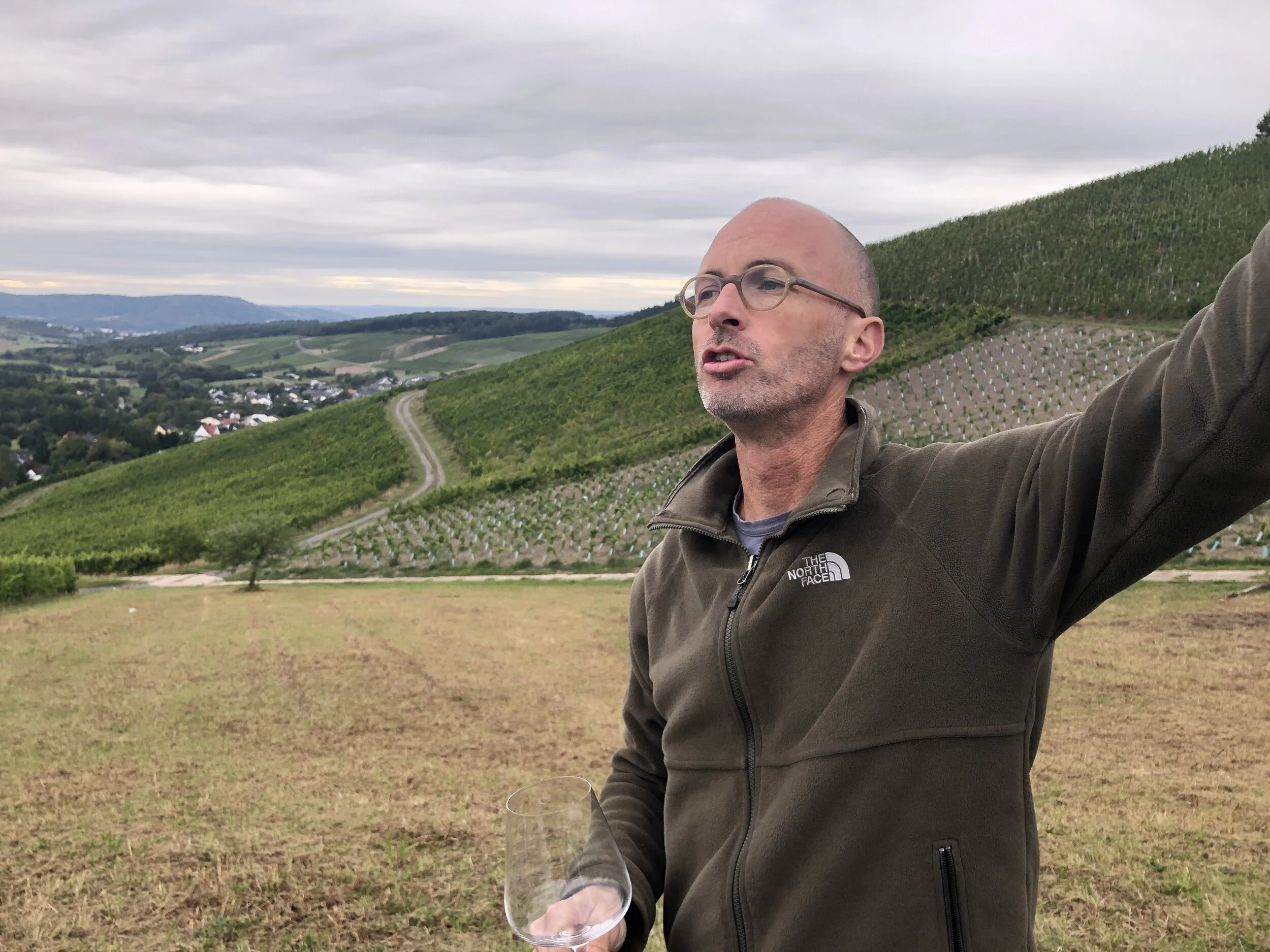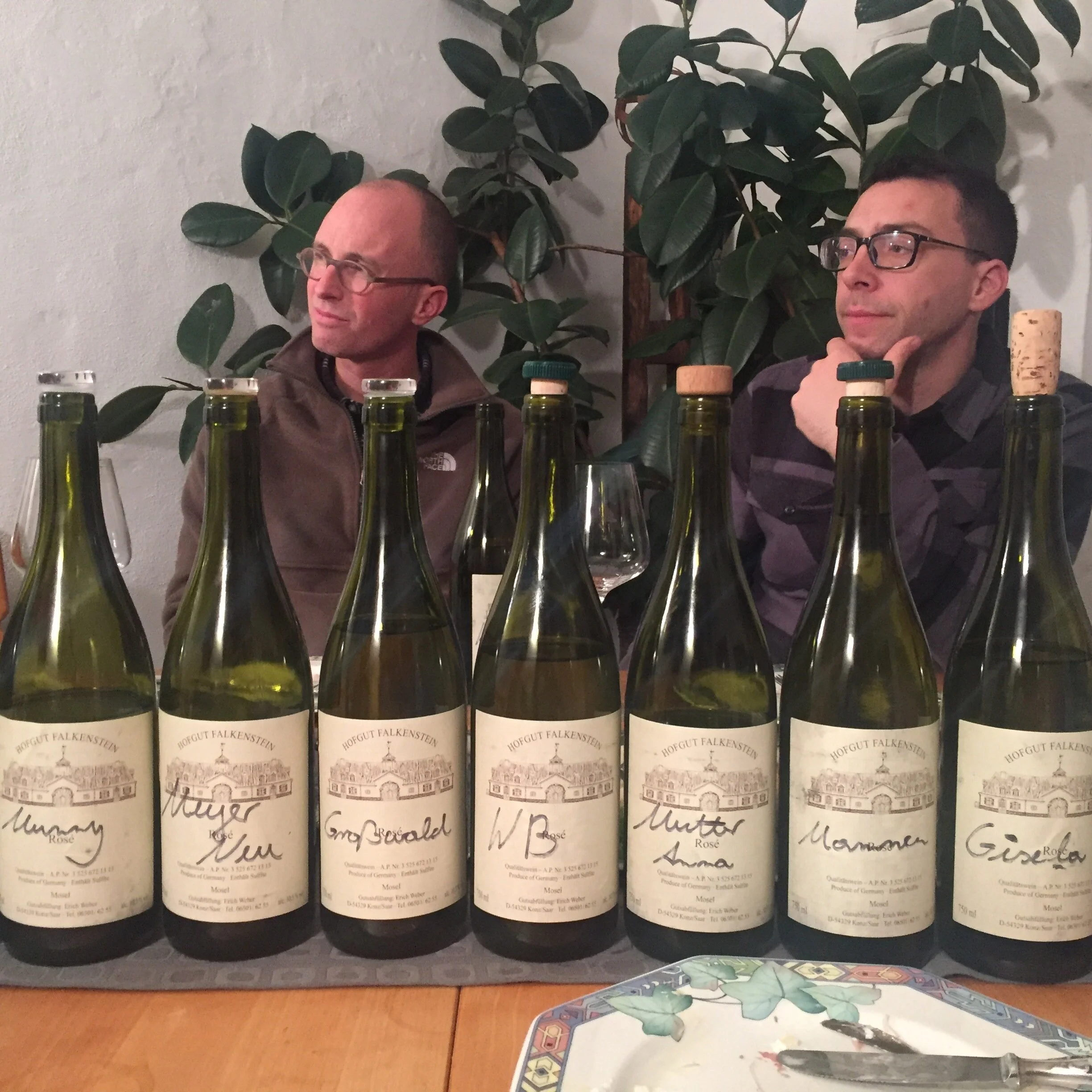Hofgut Falkenstein
The Weber family farms about 13ha of mainly old Riesling vines in a side valley of the Saar known as Tälchen (“little valley”). In 1985, Erich Weber and his wife, Marita, built up the property of the then-dilapidated Falkensteinerhof (established in 1901) from scratch. Today, Erich is joined by his middle son, Johannes, to produce some of the most authentic wines in the Saar. The Weber's top vineyard sites are located on various south-facing hillsides of primarily iron-rich gray slate with some quartz, including the highly prized sites of Niedermenniger Herrenberg, Niedermenniger Sonnenberg, Krettnacher Altenberg, and the once legendary Euchariusberg. The average age of their vines is between 40-50 years old, and the oldest are more than 90 years old with over 1ha of ungrafted vines. The Webers work close to organic with no herbicides and a healthy cover crop and believe in low yields (one flat cane per vine). All the grapes are hand-harvested and whole Riesling grapes are gently pressed in a pneumatic press for two to three hours. The musts flow via gravity into the cellar below for a natural sedimentation overnight before being vinified exclusively with ambient yeasts in 1,000-liter ancient oak Fuder casks and a couple of 500-liter Halbfuder, the traditional fermenting and aging vessels for Mosel wine. The Webers like to bottle each Fuder separately, which is unheard of today, even though it was the standard in old times. Therefore, they can have two or more casks from the same vineyard site and with the same Prädikat. However, these wines will have different AP numbers because they come from different parcels of the same vineyard site and were fermented, aged, and bottled separately. All of this work results in an array of green-tinted, light-bodied, high-acid, unchaptalized dry (trocken), off-dry (feinherb), and fruity Saar wines, all of which are true cask-by-cask bottlings.








































